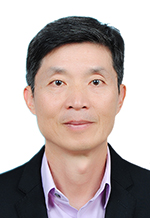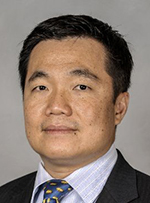There’s no doubt that Asia has enormous geopolitical influence. And there’s also no doubt that the Asia Chapter of TEI is one of the organization’s fastest growing, with clear global significance. Tax Executive wants to give readers the flavor of the Asia Chapter, with a recipe that is one part history, one part present, and one part future, with a dash of chapter activities, programs, and initiatives and garnished with the visit by TEI officials in late 2016.
Part I: History
TEI’s Asia Chapter was established in Hong Kong in 2004. With rapid membership growth over the past five years, the chapter now has more than 190 members in the Asia-Pacific region.
Geographically, the Asia Chapter is likely the most sprawling, with some members separated by several time zones and as much as a ten-hour flight. Singapore has the most members with almost ninety, followed by Hong Kong with nearly forty. Mainland China is the subregion with the most significant growth, with membership expanding rapidly to over thirty in just three years, mainly in the major commercial hubs of Shanghai, Beijing, and Guangzhou. The Asia Chapter also maintains a wide footprint, with tax executives located across the region in Australia, India, Japan, South Korea, Malaysia, Indonesia, and Thailand.
The founder and first president of the TEI Asia Chapter was William (Bill) Ramirez, who moved to Asia in 2003. Ramirez was also a founding member of the EMEA Chapter in 1998 and served on its first board.
Initial efforts to establish the Asia Chapter when he first arrived in Hong Kong in 2003 were not all smooth sailing. Fate intervened in the form of the SARS epidemic, which led to travel restrictions and the cancellation of most Chapter meetings. It was not a good time to plant the TEI flag. By the end of 2003, the epidemic had subsided and the law firm of Baker & McKenzie held its Annual Asia Tax Meeting. Thirty-three people who attended that meeting with Bill, including Sharon Tan and Terry Yuen, current board members of the Asia Chapter, supported the launch of TEI in Asia.
Many people have helped to make the Asia Chapter what it is today, including Tan, who as senior director of tax operations for Nike is based in Singapore, and Yuen, who is BP’s country president for Singapore and Myanmar and the regional head of tax for Asia, based in Singapore. Teaming up with Ramirez to get the Asia Chapter off the ground, they were instrumental in fostering its growth.
Tan had subsequent stints as both Asia Chapter representative for the Asia-Pacific region and regional vice president for EMEA and Asia-Pacific. During this time, she organized the first TEI Asia Chapter U.S. Tax Training Program and the first joint TEI meeting in Dubai for EMEA and Asia TEI members. The U.S. Tax Training Program remains an important event in the Chapter’s calendar. She continues to devote time and energy to the Asia Chapter, serving as a board member to this day, mentoring younger board members, and inspiring others to take up leadership roles within the Chapter.
Yuen has been involved since those first days, serving on the board and, as the current Chapter treasurer, inspiring others along the way.
In compiling this article, Tax Executive interviewed several past presidents of the chapter.
William (Bill) Ramirez
 Bill Ramirez was the founding member and first president of the TEI Asia Chapter in 2004. Ramirez is now a professor at Portland State University and continues to work with TEI as a member of the Oregon Chapter. He has been instrumental in the organization of the last six annual Chapter conferences and is chairman of the Chapter’s scholarship committee.
Bill Ramirez was the founding member and first president of the TEI Asia Chapter in 2004. Ramirez is now a professor at Portland State University and continues to work with TEI as a member of the Oregon Chapter. He has been instrumental in the organization of the last six annual Chapter conferences and is chairman of the Chapter’s scholarship committee.
There were several major differences between launching a TEI chapter in Europe and in Asia, according to Ramirez. One of the biggest, he notes, is geography. For example, in Europe, individuals in Geneva, London, Munich, or Paris would have an hour-long flight to reach a meeting in Brussels. In contrast, to attend an Asia Chapter meeting in Singapore, participants would fly for four hours and even more for members from Australia and Japan. Another difference was the lack of common core. In Europe, the European Union led to cooperation and convergence on tax matters, but Asia lacked a comparable organization. In Europe, the Paris-based OECD also fostered cooperation on tax matters. In the Asia Chapter, only two member countries, Australia and Japan, belonged to the OECD at the time. In Europe, there were organizations that had tax committees, the American Chamber of Commerce, the European American Tax Institute, and the International Fiscal Association. Asia had fewer of these types of organizations, which also tended to be smaller and focused only on domestic tax issues.
What strategy did Ramirez use to gain momentum for TEI in Asia? Since the concept of an organization like TEI was unknown in Asia, he approached the Big 4 accounting firms with a “win-win” strategy for joining TEI. Members could get high-quality, affordable education and networking opportunities with peers from all over Asia. Big 4 firms gained the ability to provide service to existing clients but also could showcase their talents to potential clients who were TEI members.
David Sutherland
 David Sutherland, chairman of the board at International Care Ministries based in Hong Kong, was Chapter president from 2006 to 2008. He says that competitors and senior-level executives in many professions can be reluctant to talk with each other, but tax professionals are better at networking and sharing experiences. One of his most cherished accomplishments with TEI was that the Asia Chapter was able to convince government taxation commissioners to reward compliant taxpayers and promote cooperation, not confrontation. He notes that if an auditor intends from the start to assess, then taxpayers have no incentive to comply. In contrast, not assessing at audit generally results in higher tax revenues, as taxpayers pay the right amount of tax the first time. He cites the Australian Compliance Risk Assessment as a model approach. Under his tenure, he says, TEI was instrumental in building perspective among governments and advisors, helping them get a better picture of themselves and sharing with them the best practices TEI had encountered across the region.
David Sutherland, chairman of the board at International Care Ministries based in Hong Kong, was Chapter president from 2006 to 2008. He says that competitors and senior-level executives in many professions can be reluctant to talk with each other, but tax professionals are better at networking and sharing experiences. One of his most cherished accomplishments with TEI was that the Asia Chapter was able to convince government taxation commissioners to reward compliant taxpayers and promote cooperation, not confrontation. He notes that if an auditor intends from the start to assess, then taxpayers have no incentive to comply. In contrast, not assessing at audit generally results in higher tax revenues, as taxpayers pay the right amount of tax the first time. He cites the Australian Compliance Risk Assessment as a model approach. Under his tenure, he says, TEI was instrumental in building perspective among governments and advisors, helping them get a better picture of themselves and sharing with them the best practices TEI had encountered across the region.
William Thomson
 William (Bill) Thomson, executive director of tax at Time Warner and based in Hong Kong, was president of the Chapter from 2009 to 2010. He describes the challenges posed by the topsy-turvy economic terrain in Hong Kong a few years ago: “Tony Fay, who was at that time regional head of tax for AIA, became president of the Asia Chapter when I stepped down. I told Tony not to feel overwhelmed, and that we had a lot of talented and motivated people on the board and in the membership whom he could tap. He should feel free to reach out to them, ask for their help, and get them involved. At the time, we were just coming out of a major financial crisis and the big investment banks were downsizing, which included large cuts to their in-house tax teams. Those teams were largely concentrated in Hong Kong, so the Chapter was losing members in Hong Kong. But at the same time, our focus on delivering value to our members and increasing our membership was bearing fruit in other areas, primarily the manufacturing and IT companies based in Singapore. All in all, we found that although our membership numbers fluctuated, we came through the year with about the same number of members as we had at the beginning of the year, which, given the depth of the economic problems, was not a bad outcome.”
William (Bill) Thomson, executive director of tax at Time Warner and based in Hong Kong, was president of the Chapter from 2009 to 2010. He describes the challenges posed by the topsy-turvy economic terrain in Hong Kong a few years ago: “Tony Fay, who was at that time regional head of tax for AIA, became president of the Asia Chapter when I stepped down. I told Tony not to feel overwhelmed, and that we had a lot of talented and motivated people on the board and in the membership whom he could tap. He should feel free to reach out to them, ask for their help, and get them involved. At the time, we were just coming out of a major financial crisis and the big investment banks were downsizing, which included large cuts to their in-house tax teams. Those teams were largely concentrated in Hong Kong, so the Chapter was losing members in Hong Kong. But at the same time, our focus on delivering value to our members and increasing our membership was bearing fruit in other areas, primarily the manufacturing and IT companies based in Singapore. All in all, we found that although our membership numbers fluctuated, we came through the year with about the same number of members as we had at the beginning of the year, which, given the depth of the economic problems, was not a bad outcome.”
For Thomson, the Chapter’s strength lies in providing continuing education about emerging and important tax topics of interest to in-house professionals with regional roles, and not just updates on the rules themselves, but a practical focus often involving members who share their experiences with others.
Lisa Zheng
 For Lisa Zheng, tax director at Procter and Gamble in Singapore and president of the TEI Asia Chapter from 2013 to 2014, the biggest challenge she faced as Chapter president was organizing events without a budget. As for how she feels about the progress the Chapter has made in recent years, Zheng says that when she took over as president, even though it was only a short time ago, the Asia Chapter was much smaller. She is pleased with the progress the Chapter has made in recent years, noting that board members are now more active, board meetings occur more regularly, and there’s more structure to the Chapter, allowing it to offer a range of educational activities, subcommittees, and targeted advocacy work. The Chapter now holds around ten major events a year, compared to two or three in other chapters Zheng has been involved in.
For Lisa Zheng, tax director at Procter and Gamble in Singapore and president of the TEI Asia Chapter from 2013 to 2014, the biggest challenge she faced as Chapter president was organizing events without a budget. As for how she feels about the progress the Chapter has made in recent years, Zheng says that when she took over as president, even though it was only a short time ago, the Asia Chapter was much smaller. She is pleased with the progress the Chapter has made in recent years, noting that board members are now more active, board meetings occur more regularly, and there’s more structure to the Chapter, allowing it to offer a range of educational activities, subcommittees, and targeted advocacy work. The Chapter now holds around ten major events a year, compared to two or three in other chapters Zheng has been involved in.
Guiness Chan
 Guiness Chan, who is now head of global transfer pricing at Applied Materials in California, was the president of the Asia Chapter from June 2014 to January 2016.
Guiness Chan, who is now head of global transfer pricing at Applied Materials in California, was the president of the Asia Chapter from June 2014 to January 2016.
According to Chan, the most interesting issue during this time was base erosion and profit shifting (BEPS). He notes that in the Asia-Pacific region, there has been great interest in BEPS and transfer pricing issues, which he says may be due to the challenging tax environment and demanding tax authorities in the region.
During his time as president of the Asia Chapter, TEI made good progress in China, developing a core group of members, forming a great partnership with PricewaterhouseCoopers, and successfully organizing an annual TEI flagship event, the China International Tax Forum. In 2013, its first year, there were about 100 attendees, which quickly doubled the next year. Thereafter, seats were snapped up so quickly that people started to ring him up for entrance tickets to the forum. Under his tenure, TEI was also represented for the first time at one of the premier international tax events in Mumbai, the Foundation for International Taxation conference.
The opportunity to network with peers not only in one’s region but also worldwide, as well as leveraging of the TEI relationship with the premier advisors for education, are some key benefits of TEI membership, according to Chan. For example, he says, if a Singapore TEI member holding regional tax responsibility encounters tax questions in, say, China, he or she could reach out to members in China or connect with local advisors through the TEI network. Members also have the opportunity to add input to tax policies, as TEI supports members who are keen to contribute to local discussion papers, he explains.
His thoughts on leaving Asia and his ongoing relationship with the Asia Chapter? “Asia is very dynamic, with several emerging countries such as China, India, and Vietnam,” he says, adding that despite the challenges posed by ever-changing regulatory environments in emerging economies, there were also opportunities. His involvement with the Asia Chapter has continued since his relocation to California; for example, he is currently representing the Asia Chapter in a TEI global outreach project to increase TEI membership outside of North America.
Part II: The Asia Chapter—Present and Future
 The current president of the chapter, in office since early 2016, is Sam Sim, IBM’s transfer pricing geo-leader for the EMEA and Asia-Pacific regions.
The current president of the chapter, in office since early 2016, is Sam Sim, IBM’s transfer pricing geo-leader for the EMEA and Asia-Pacific regions.
Here’s how Sim describes the state of the Chapter today:
“Our Chapter is strategically located in the most dynamic economic region in the world. To seize this growth potential and to better serve our members, we have in the past year expanded the board to create regional vice-president leadership roles and expanded the tax committee to form indirect tax and transfer pricing subcommittees. The regional VP leadership (Cindy Li, Microsoft leader for Greater China; Eugene Gay, Asia-Pacific head of tax for Marsh & McLennan; and Prashant Bhatnagar, Procter & Gamble India tax leader) is a recognition of the diversity of Asia where local clusters of members are better served by networking events and programs customized to their specific needs and cultural context. The group in Beijing, for instance, held a major seminar with China’s State Administration of Taxation participating in conjunction with Beijing’s Enterprise Tax Directors’ Association, whereas the members in Singapore preferred smaller but more frequent teleconferences and half-day luncheon talks.
“The tax subcommittees are modeled upon the successful structure in the EMEA Chapter with a vision beyond merely gathering members interested in these specialist fields, but more broadly to link Asia to EMEA and the other U.S. chapters in exchanging knowledge. For instance, Asian members can benefit from the greater sophistication of Europe as VAT regimes proliferate across Asia and, in turn, Asia can contribute its ground insights of vital post-BEPS developments in China and India to TEI executives in Europe and the Americas who frequently have responsibilities over Asia. The other major initiative is the Asia Fellows’ Program where promising mid-career professionals appointed Fellows inject energy into Chapter activities and, in turn, enjoy the opportunity of close interaction with and mentorship from the Chapter seniors. This program will also identify and cultivate future leaders of the Chapter. Finally, the year was topped off with the growth of membership from 160 at the start to more than 190 at the end of the year and the successful visit of Janice Lucchesi, international president, Eli Dicker, and Patrick Evans to Asia. With major structural reforms in place and dynamic new leaders and programs initiated, the Asia Chapter is well placed to contribute to the continued growth and dynamism of TEI around the world.”
Sim notes that the chapter also is involved in a plethora of exciting initiatives, activities, and projects (see box, page 22).
Part III: Visit From TEI Officials
In 2014, the Asia Chapter hosted a visit from TEI’s then-international president Teri Wielenga and chief tax counsel Patrick Evans to Shanghai, Hong Kong, and Singapore. Robert Lider, TEI past president and executive director at JPMorgan Chase, arranged that trip, which saw the successful meeting with tax authorities and TEI’s participation in the TEI–PwC International Tax conference. Following that success, at the end of 2016, Sam Sim, the current Asia Chapter president, initiated an even more ambitious visit to Asia by Janice Lucchesi, international president, Eli Dicker, executive director, and Patrick Evans. The itinerary, which was orchestrated by board members Prashant Bhatnagar, Eugene Gay, Lisa Gan, Cindy Li, Jackie Chan, Du Nan, and Leon Liu with the support of the Fellows, encompassed India, Singapore, Shanghai, and Beijing and included meetings with tax authorities. More important, the visit anchored TEI participation in major conferences in India and China and allowed TEI to meet with and hear from members and Big 4 and law firm supporters across Asia. The trip showcased the commitment and capabilities of the Asia Chapter and testified to TEI’s commitment to the immense potential and promise of the Asia region as TEI expands its international footprint. The Chapter looks forward to this transition where Asia would be sustained through regular future visits from key TEI officials.
First Leg—India: Participation in the Foundation for International Taxation Conference in Mumbai
To strengthen TEI’s presence in India, we became “knowledge partners” with the Foundation for International Taxation (FIT) in Mumbai. In the first week of December, Janice and Eli participated in the popular annual three-day event organized by prominent tax practitioners and attended by industry tax experts and top government officials. To set the tone of TEI in India we additionally partnered with Dhruva Associates, who arranged for a breakfast session where Janice and Eli addressed the gathering of about forty industry tax representatives. The increasing importance of TEI’s role in challenging tax environments was very well received by the audience. The technical discussions on BEPS and challenges attached to it were impressive. The main FIT event ran for three days, and not only introduced TEI to the audience of more than 300 participants but also presented how TEI can contribute to the development of the tax fraternity. The TEI leadership had excellent discussions on the technical aspects related to the new challenges posed by BEPS and other offshore transactions.
The visit to India definitely laid a strong foundation for TEI in India, and we look forward to increased Indian membership and participation in TEI’s Asia Chapter.
Second Leg—Singapore: Meeting With the Tax Authority and Key Economic Agencies
EY Singapore kindly hosted a closed-door session for members to meet with Janice, Eli, and Patrick. This session was followed by a productive meeting with senior Singapore officials from the Inland Revenue Authority, the Economic Development Board, International Enterprise Singapore, and the Ministry of Finance. The discussion was broad-ranging, covering the post-BEPS environment facing multinationals, Singapore’s response, and potential issues that may be addressed in the event of a bilateral tax treaty between Singapore and the United States. This high-level meeting marks the highlight of the Asia Chapter’s advocacy efforts and demonstrates the value of TEI feedback to senior governmental stakeholders. The evening saw a cordial dinner where the board members hosted regional heads of tax, including potential members.
Final Leg—China: Shanghai and Beijing—Flagship Fourth TEI–PwC International Tax Forum
China represents the fastest-growing region and arguably the one country apart from Canada that has the potential to grow and sustain a large membership base outside the United States. In line with this potential, the TEI delegation met with representatives of all four Big 4 firms. There were also two major dinners, one in Shanghai and one in Beijing, where members could closely interact with Janice, Eli, Patrick, and Sam Sim. More important, the senior leadership of the Shanghai Tax Directors’ Group and Beijing’s Enterprise Tax Directors’ Association attended at the Asia Chapter’s invitation. These events cemented close ties between the Asia Chapter and these local tax directors’ associations and paved the way for future collaboration as they value TEI’s expertise and international perspectives. The Fourth TEI–PwC International Tax Forum in Beijing, a two-day flagship event attended by more than 200 tax professionals, was a fitting grand finale to the trip. The TEI delegation met privately with the State Administration of Taxation (SAT) director who had delivered the keynote address and expressed TEI’s desire to deepen our engagement with China and regularize our meetings with the SAT.
Michael Levin-Epstein is senior editor of Tax Executive.


 The Asia Transfer Pricing (TP) subcommittee was introduced in 2016 to bring new developments and regulatory changes to the attention of TEI Asia members. The subcommittee is led by Adnan Begic, who also leads Michelin’s TP function in the Asia-Pacific region.
The Asia Transfer Pricing (TP) subcommittee was introduced in 2016 to bring new developments and regulatory changes to the attention of TEI Asia members. The subcommittee is led by Adnan Begic, who also leads Michelin’s TP function in the Asia-Pacific region.
